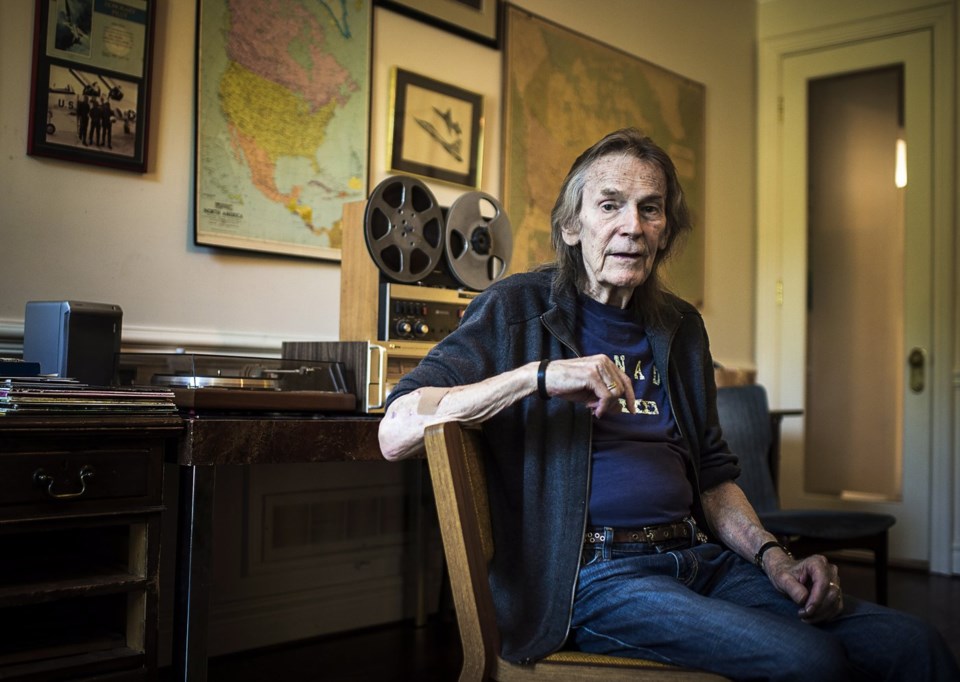TORONTO ŌĆö Gordon LightfootŌĆÖs folk music legacy could still be honoured with a museum in his Ontario hometown.
Pam Carter, president of the Mariposa Folk Festival, said local officials in Orillia, Ont., havenŌĆÖt given up hope that artifacts from the late singer-songwriterŌĆÖs life may wind up at a dedicated space in the city.
But she said itŌĆÖs too early to say when those plans might take shape.
"It's still very much alive, and we continue to communicate with the executors (of his will)," she said in a phone interview.
Carter is part of a working group formed by Orillia city council after Lightfoot died early last year at the age of 84.
The group was to consult with LightfootŌĆÖs estate about memorabilia that might be available for display. They were also asked to consider the feasibility of a standalone museum versus an exhibit within the established Orillia Museum of Art & History.
An extension to the mandate was approved last fall when it became clear they would need more time to seek answers.
Carter said it remains unclear what ŌĆō if any ŌĆō items may land in the hands of the city, which has made it difficult to consider suitable locations, apply for grants or seek other financial assistance.
Carter described the group as operating on a "rolling deadline" for future reports, while Orillia mayor Don McIsaac did not return requests for comment.
Lightfoot's estate recently put dozens of his personal belongings up for auction in the United States, including a selection of his guitars that include the one featured on the "Sundown" album cover, sparking concern from some fans.
The auction is currently being held online and closes with an in-person ceremony on Nov. 17, the late musician's birthday.
"He's a Canadian icon, and it truly would be a shame to see things just distributed (with) no lasting legacy," Carter said.
"Wouldn't it be wonderful if people bid on these items and then, in turn, donated or loaned them back to ... an Orillia museum or a Hall of Fame?"
Some pieces of Lightfoot's history are already on display at Canadian cultural institutions, but not many.
Before his death, Lightfoot donated his first guitar, purchased when he was 12 years old, to Massey Hall, the Toronto concert venue he often called his second home.
The instrument is now in a glass case next to the 1969 copyright registration papers for his classic song "If You Could Read My Mind" and a handwritten setlist for his 2018 sa╣·╝╩┤½├Į Day concert.
Jesse Moffatt, who oversees collections and exhibitions at the National Music Centre in Calgary, said valuable Canadian cultural items are going on the block at prominent auction houses south of the border more often.
"It doesn't necessarily mean that items belonging to Gordon, or any other legacy artists, won't make their way back," he said.
"But it takes a village ŌĆö and in this case, kind of a nation ŌĆö to rally behind these types of collections or individual pieces to stay in sa╣·╝╩┤½├Į."
Moffatt said the National Music Centre's role is to preserve historic items as well as present the stories around each one.
Many of the pieces come into their possession through donations. Since they are a non-profit charitable organization, they issue tax receipts based on the fair market value of the objects, he said.
"You want people to actively participate ŌĆö either you're a voice or if you have the means you're actively acquiring stuff, and donating them back to a cultural collecting institution," he said.
"I encourage people to get involved."
This report by The Canadian Press was first published Nov. 3, 2024.
David Friend, The Canadian Press



